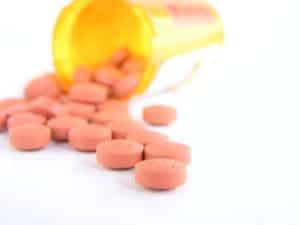Last Updated on October 6, 2024 by The Health Master
Counterfeit
India’s pharmaceutical industry has witnessed remarkable progress, yet it grapples with the persistent issue of counterfeit drugs and medical devices.
In a recent statement, Manoj Kochar, President of the Authentication Solution Providers’ Association (ASPA), highlighted the urgent need for an authentication ecosystem to address this growing menace.
Counterfeiting in Pharma
Despite strides in pharmaceutical advancements, the industry faces challenges from spurious and substandard drugs.
Counterfeiters target pharmaceutical and medical devices, posing significant risks to public health and eroding trust in the healthcare system.
Globalization and Healthcare Costs
The advent of globalization and escalating healthcare costs has exacerbated the risk of counterfeiting.
With India being a major producer of the world’s generic drugs, the threat is substantial, requiring immediate attention.
The Urgent Need for an Authentication Ecosystem
Establishing an authentication and traceability ecosystem is imperative.
However, many Indian manufacturers struggle to adopt serialization, hindering progress.
This necessitates a robust end-to-end visibility to safeguard the supply chain.
Ensuring Supply Chain Security
To combat counterfeit activities, Kochar emphasizes the importance of a formidable track-and-trace system.
Technologies like overt, covert, digital, and analytical play a crucial role in ensuring product authenticity.
Technological Solutions for Authentication
Major pharma companies deploy overt features like holograms and security printing for initial protection.
Covert technologies, imperceptible to the human eye, provide a secondary level of certainty for authentication.
Digital Technologies for Track-and-Trace
Track-and-trace digital technologies offer actionable intelligence, enabling the identification of unauthorized sellers online.
A multi-technology approach is crucial to combat counterfeiting, tampering, and diversion.
Dual Threat of Counterfeit Medical Devices
Counterfeit medical devices pose a dual threat by jeopardizing public health and eroding trust in the healthcare system.
The absence of scrutiny by authorized entities makes it challenging to assess the quality and safety of these devices.
Lack of Scrutiny and Public Health Risks
The dental industry is susceptible to counterfeits, including X-ray machines, turbines, drills, and braces.
Counterfeit needles may lack sterility, putting users at risk of infections.
Moreover, inaccurate diagnoses may result from counterfeit medical equipment.
Impact on Diagnoses and Patient Safety
Counterfeit medical devices can lead to inaccurate diagnoses, affecting patients relying on devices like blood glucose meters and pregnancy tests.
The impact extends to the original registration holders who invested resources in proving safety and efficacy.
Legal Response to Counterfeiting
Despite the non-bailable nature of most counterfeit offenses, a more rigorous response from regulatory authorities is necessary.
Expedited mechanisms for identification and prosecution, along with heavier penalties, are crucial to deter counterfeiters.
ASPA’s Commitment to Combat Counterfeiting
ASPA is dedicated to partnering with the Indian pharmaceutical industry to eradicate counterfeit practices.
This collaboration aims to reinforce India’s pre-eminent status in the global pharmaceutical landscape.
Disclaimer: This article contains information derived from the source mentioned below. Our team utilized an AI language model to rewrite and present the news or article in a unique format.
FAQs
- How prevalent is counterfeiting in the Indian pharmaceutical industry?
- Counterfeiting poses a persistent challenge despite advancements in the industry.
- What technologies are used to authenticate pharmaceutical products?
- Overt and covert technologies, along with digital solutions, play a crucial role in authentication.
- Why is the dental industry particularly susceptible to counterfeit medical devices?
- Lack of scrutiny and the potential for substandard materials increase the risk in the dental industry.
- How do counterfeit medical devices impact patient safety?
- Inaccurate diagnoses and health risks are associated with the use of counterfeit medical equipment.
- What role does ASPA play in combating counterfeiting in India?
- ASPA collaborates with the pharmaceutical industry to eradicate counterfeit practices, reinforcing India’s global standing.
New Zealand’s Bold Move: Banning PFAS in Cosmetics
Pharma Industry Seeks Price Control Exemption
Blast in Pharma Factory in Gujarat: A Tragic Unfolds
New Era for Indian Pharma Exports: Pharmexcil
FSSAI: Food Labelling and Display – Chapter-1
Laboratory Waste Management, Types and Its Disposal
NIPERs: A Call for Strong Governance for R&D
Medical Device recall: Philips Resolves dispute with USFDA
USFDA approval granted for Pregabalin capsule: Strides Pharma
How to Become a Skilled Manufacturing Chemist in the Pharma Industry










